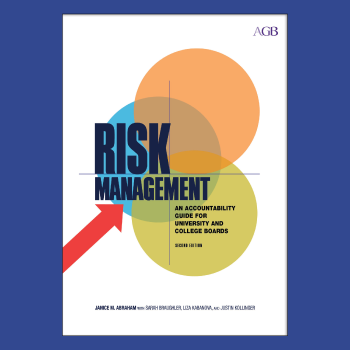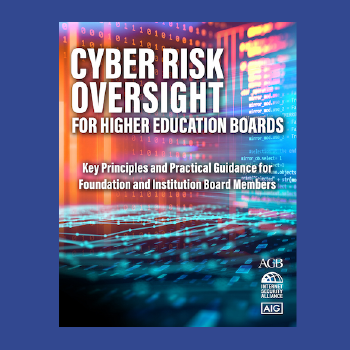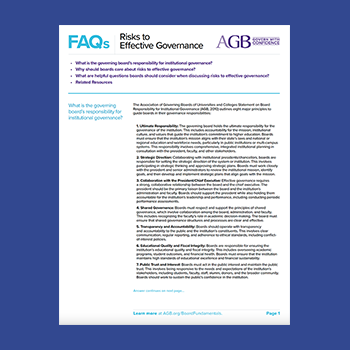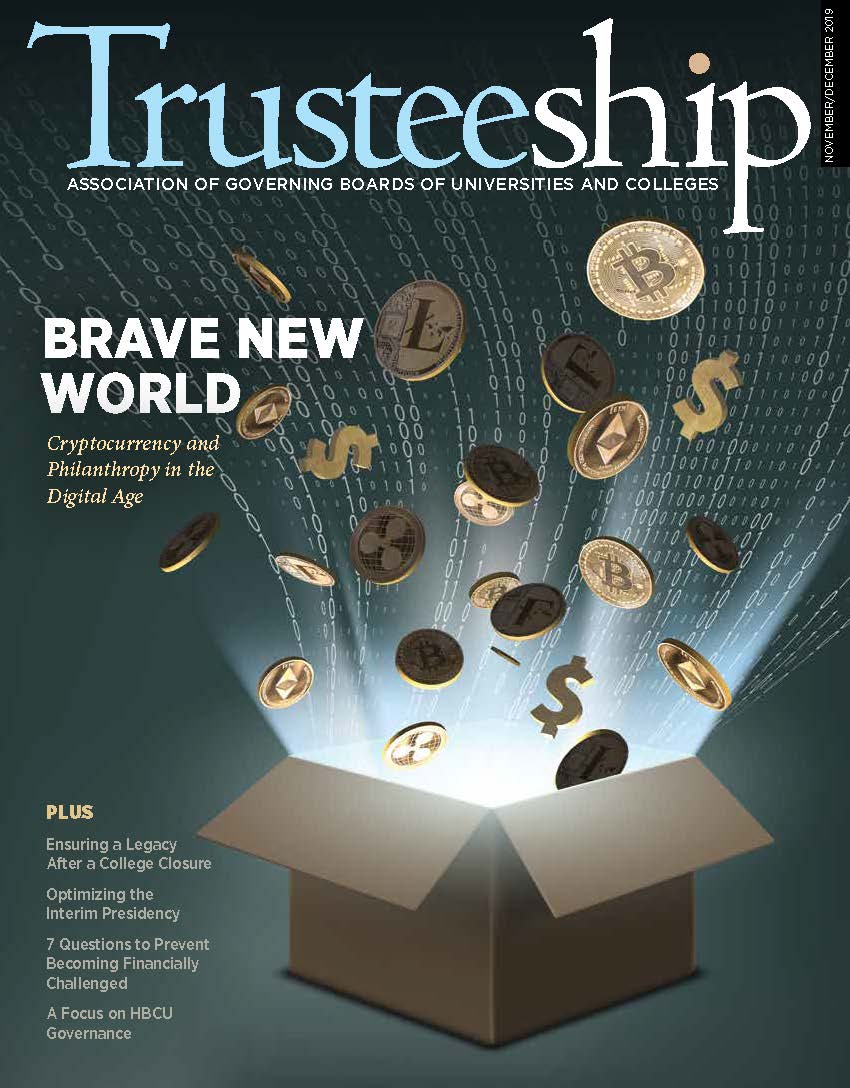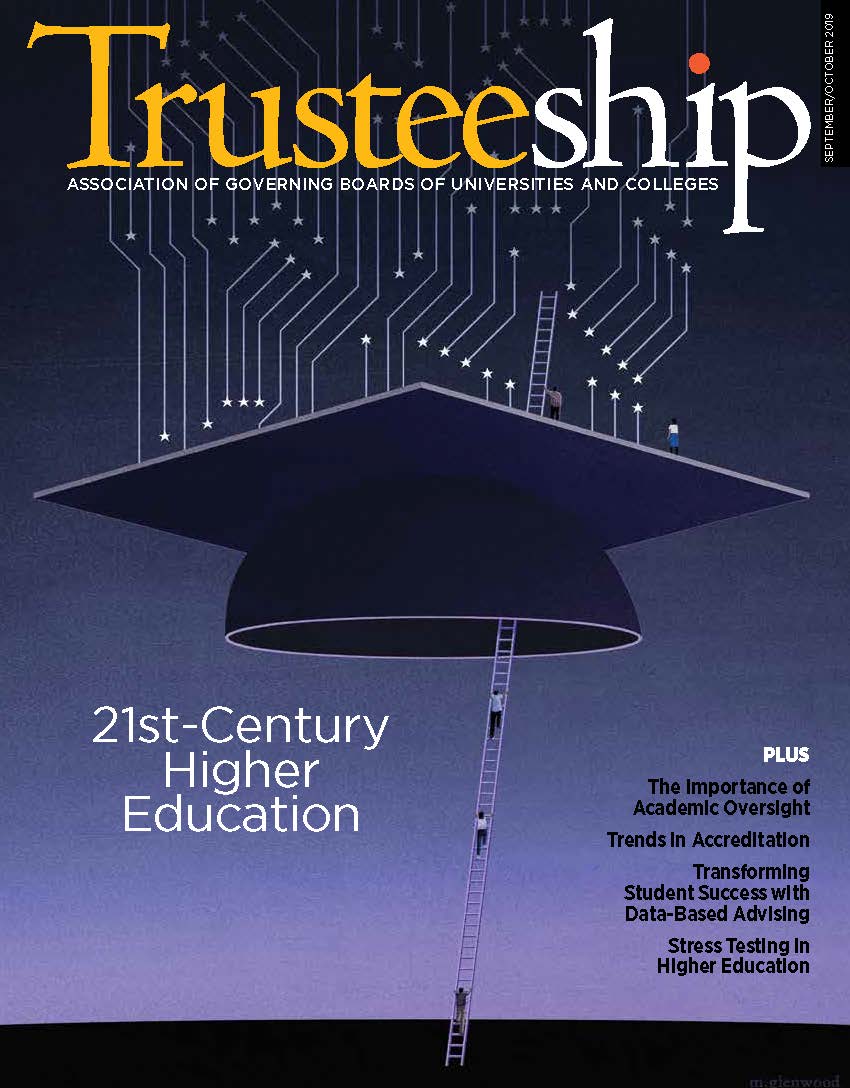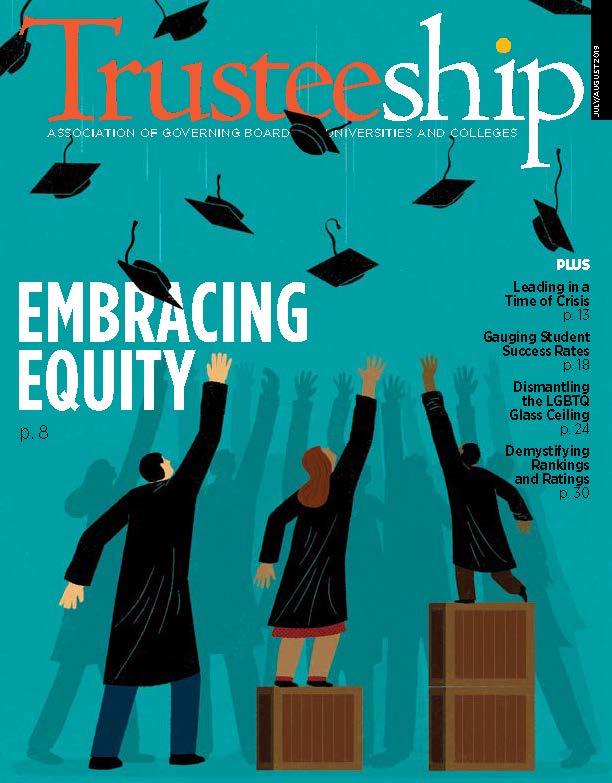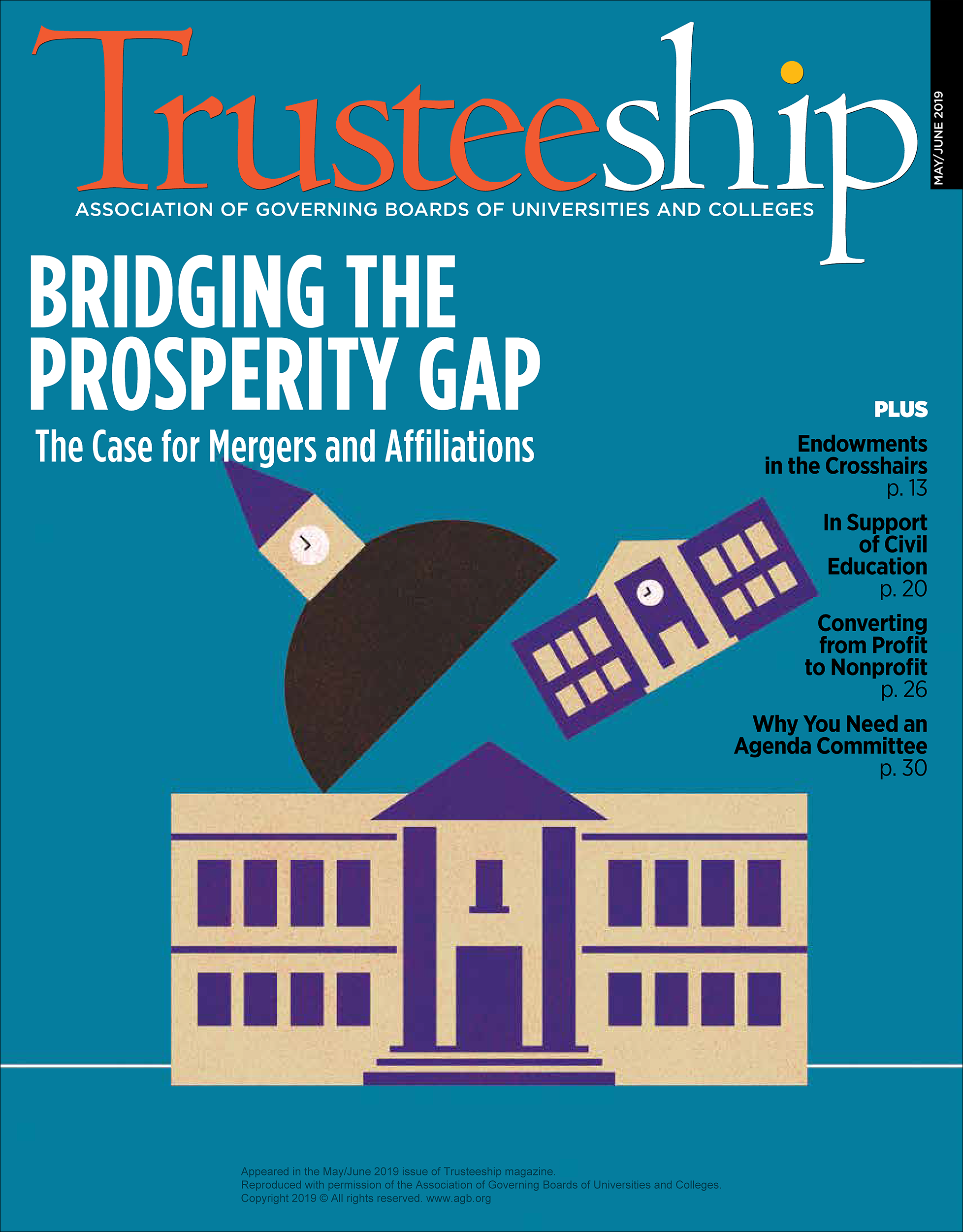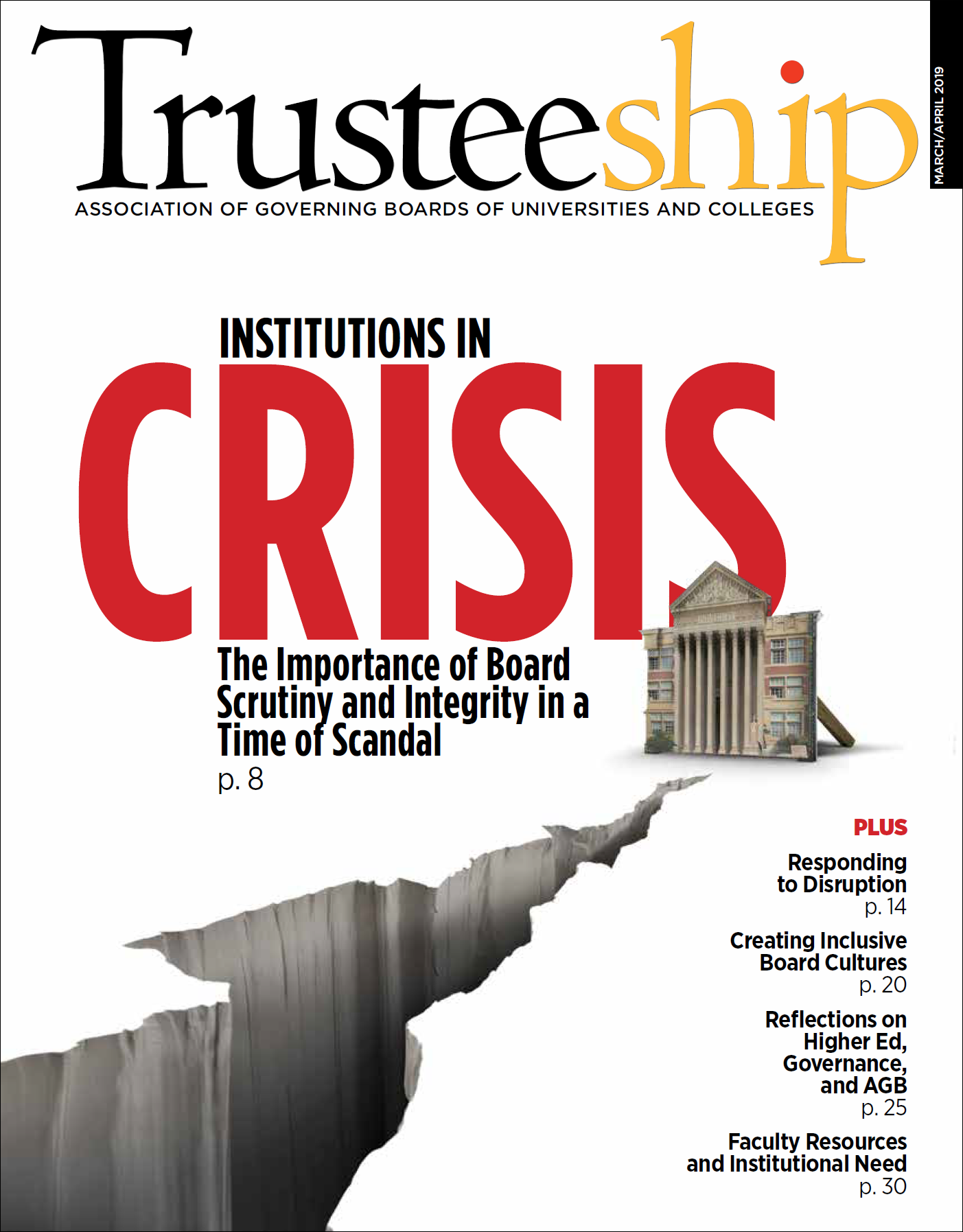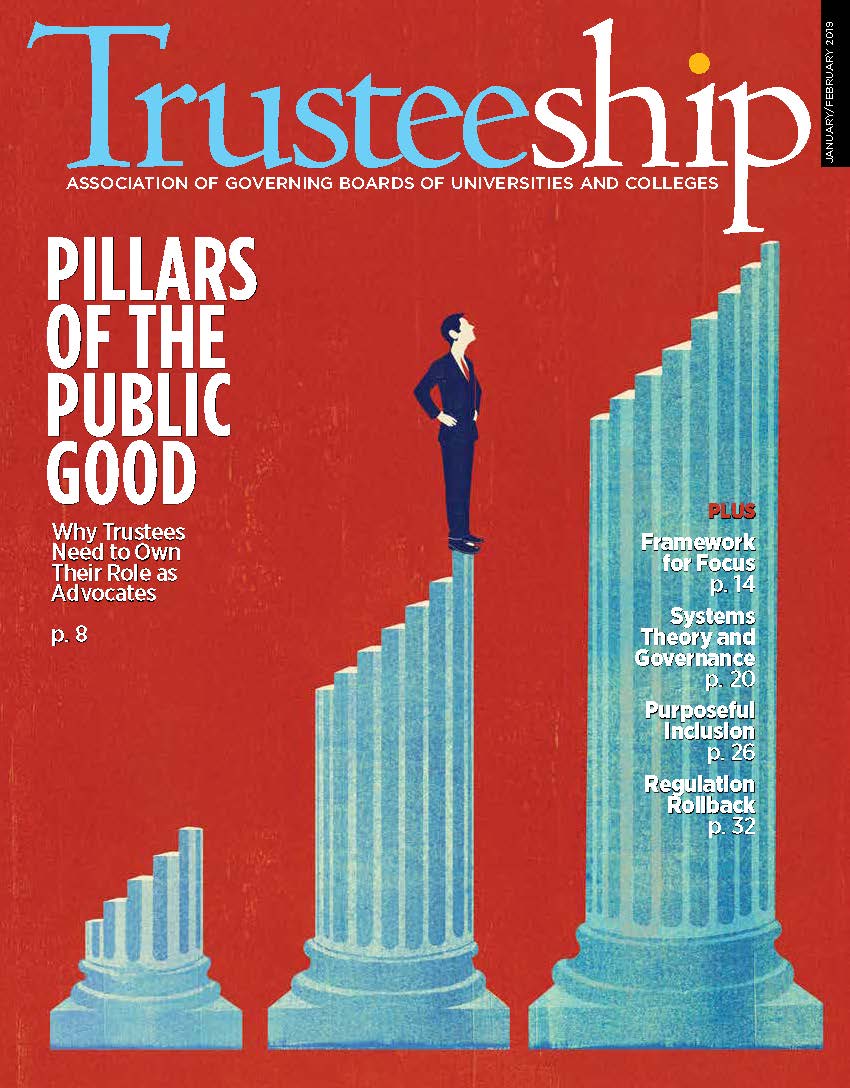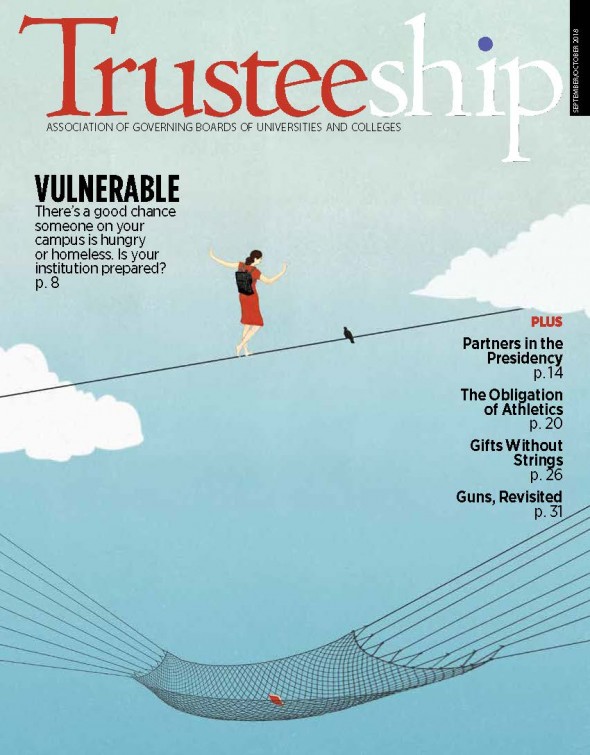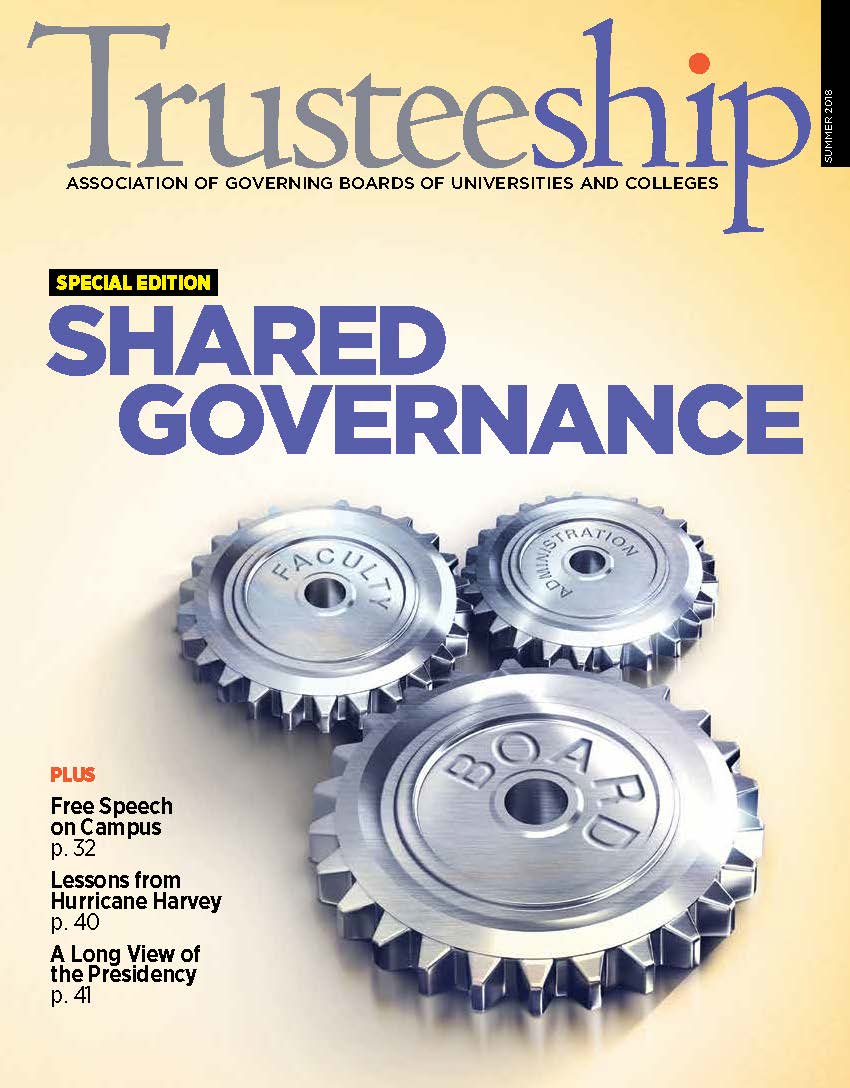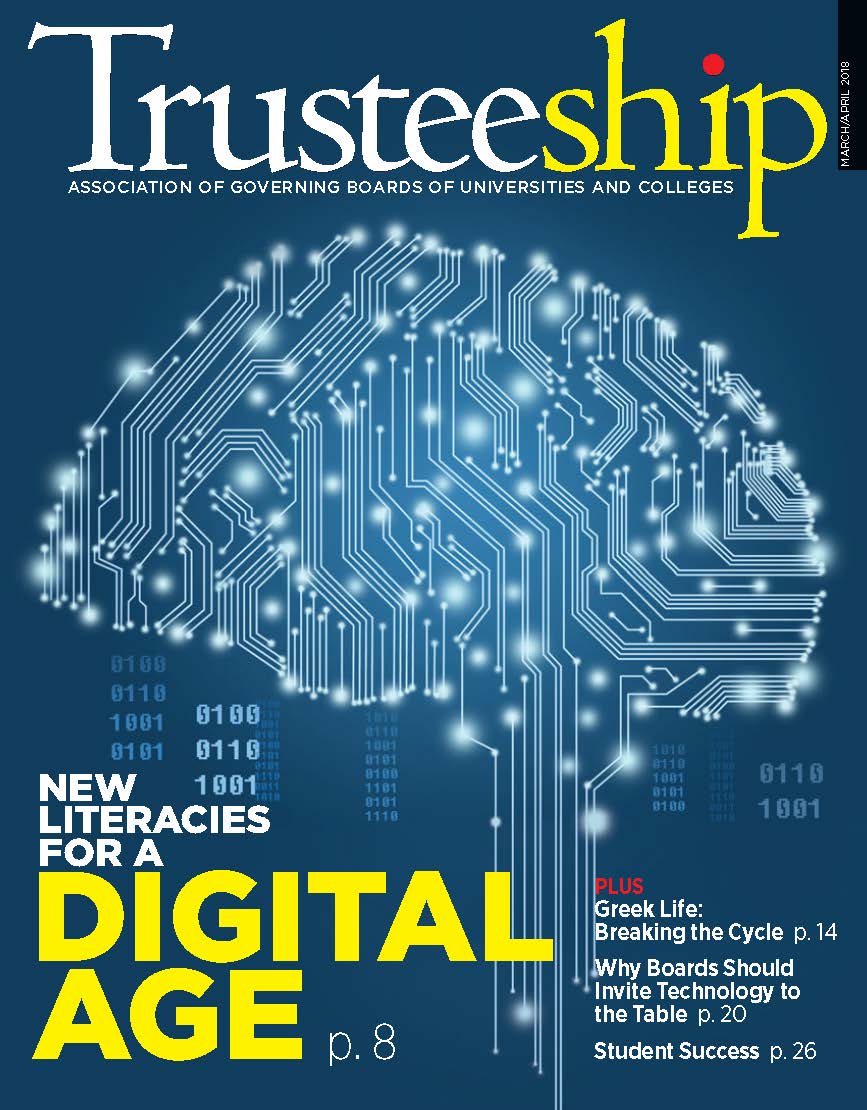Why this is important.
Only governing boards fully engaged in risk management can effectively support their institutions as they weather the literal and figurative storms facing higher education today. Every committee, not just members of the finance or audit committees, must engage in thoughtful risk assessment and avoid unjustified complacency.
AGB encourages our members to engage in a robust Enterprise Risk Management (ERM) program at the institutions they serve. A comprehensive program enables administrators to “assess and manage institution-wide risks and the external and internal forces that shape the risk environment” of an institution.1 Ultimately, appropriate board oversight and ERM reports inform governing boards of the most critical risks to fulfilling their strategic plans and institutional mission.
Sources: 1Risk Management: An Accountability Guide for University and College Boards, Second Edition by Janice M. Abraham with Sarah Braughler, Liza Kabanova, and Justin Kollinger, AGB 2020
AGB Board of Directors’ Statement on Institution-Foundation Partnerships, AGB 2020
Questions for boards.
Click below to reveal key questions for your board to consider:
Identifying Risk
Consequential Questions:
- How can our board identify the next big emerging risks?
- Does our institution engage in financial stress testing on a regular basis? What financial indicators does our board review to gauge financial stress?
- How will our institution stay ahead of cybersecurity risks?
Sources:
Risk Management: An Accountability Guide for University and College Boards, Second Edition by Janice M. Abraham with Sarah Braughler, Liza Kabanova, and Justin Kollinger, AGB 2020
Top Strategic Issues for Boards 2020–2021, AGB 2020
Processes
Consequential Questions:
- How can our board maintain staff engagement in risk management?
- How does our board incorporate the Enterprise Risk Management (ERM) process into our culture?
- Does every committee on our board incorporate risk management into their daily work?
- Does our institution have risk management and crisis communication plans in place for protecting and advancing the institution’s reputation?
Sources:
Risk Management: An Accountability Guide for University and College Boards, Second Edition by Janice M. Abraham with Sarah Braughler, Liza Kabanova, and Justin Kollinger, AGB 2020
Top Strategic Issues for Boards 2020–2021, AGB 2020
Evolving Practices
Consequential Questions:
- How can ERM inform our strategy?
- How can our board refresh our program after a few years of success (or even after a few years of challenges)?
- Historically, how much additional effort has our board expended to instill future confidence in the institution after a crisis? What did we learn from this experience?
Sources:
Risk Management: An Accountability Guide for University and College Boards, Second Edition by Janice M. Abraham with Sarah Braughler, Liza Kabanova, and Justin Kollinger, AGB 2020
Top Strategic Issues for Boards 2020–2021, AGB 2020
Recommended resources.
We carefully curated these staff-picked resources for you:
Risk Management: An Accountability Guide for University and College Boards, Second Edition
2020
Janice M. Abraham with Sarah Braughler, Liza Kabanova, Justin Kollinger
Cyber Risk Oversight for Higher Education Boards
2022
AGB in partnership with ISA and AIG
Risks to Effective Governance
FAQs
AGB
Higher Education Risk Governance in an Increasingly Complex, Expansive, and Regulated Environment
Podcast
Featuring Leigh Goller, Barbara McCuen Jones, Sharon McMullen, and Anne Pifer
Managing Reputational Risk
FAQs
AGB
Cyber Risk
FAQs
AGB


